 Student midwives spend approximately 50% of their three year undergraduate programme in the clinical area. Going to a new placement is often a stressful time for them as they consider ‘will they fit in’, ‘will they know enough’, ‘have they the right skills’, ‘what will they be able to learn whilst there to meet their practice assessments’ and so on. Other concerns relate to being away from home, what hours they are expected to do and how they cope with ‘difficult’ mentors. If students are unfamiliar with healthcare environments it takes time for them to adjust and become used to the environment. It was these thoughts that began fermenting in my head back in 2010 and following a positive response from students whose views on a book on placements were informally sought, I pitched the idea to a commissioning editor at Wiley Blackwell. In addition wider research had revealed that no such book existed within the published midwifery arena. Finally, in 2012 a contract was agreed between myself, and Margaret Fisher, Associate Professor in Midwifery at Plymouth University to co-edit nine chapters for submission in November 2014. The book is now due for publication on the 11th December 2015.
Student midwives spend approximately 50% of their three year undergraduate programme in the clinical area. Going to a new placement is often a stressful time for them as they consider ‘will they fit in’, ‘will they know enough’, ‘have they the right skills’, ‘what will they be able to learn whilst there to meet their practice assessments’ and so on. Other concerns relate to being away from home, what hours they are expected to do and how they cope with ‘difficult’ mentors. If students are unfamiliar with healthcare environments it takes time for them to adjust and become used to the environment. It was these thoughts that began fermenting in my head back in 2010 and following a positive response from students whose views on a book on placements were informally sought, I pitched the idea to a commissioning editor at Wiley Blackwell. In addition wider research had revealed that no such book existed within the published midwifery arena. Finally, in 2012 a contract was agreed between myself, and Margaret Fisher, Associate Professor in Midwifery at Plymouth University to co-edit nine chapters for submission in November 2014. The book is now due for publication on the 11th December 2015.
Professor Paul Lewis wrote the forward and chapter contributions from Bournemouth University lecturers, Dr. Sue Way, Stella Rawnson and myself, prepare prospective and current students for midwifery practice and the profession, caseloading and the elective period. Jo Coggins and Henrietta Otley, both midwives practising in North Wiltshire were co-opted to write chapters on ‘Preparing for practice’ and ‘Low-risk midwifery placements’. Other chapters were written by Margaret Fisher and Faye Doris at Plymouth University.
The final published edition is small enough to fit into a uniform pocket and contains many vignettes from students currently or previously studying at Bournemouth and Plymouth University. Their stories reflect ‘real life’ clinical experience and ‘Top Tips’ provide overall advice. Three original cartoons illustrating the vagaries of placement were devised by Clare Shirley (formerly a BU student, now a newly qualified midwife) and Hugo Beaumont (4th year medical student at Plymouth University). Students and women have provided photographs. Both Margaret and I hope students far and wide will enjoy the book which aims to provide a realistic perspective on clinical placement, by offering hints and tips and encouragement along their student journey.
Category / writing
Academy of Marketing 3rd B2B Marketing Colloquium in Paris, 11-12 APRIL 2016: Opportunity to publish in Special Issue, Journal of Industrial Marketing Management (3* ABS ranking)
Dear All,
Université Paris 1 Panthéon Sorbonne in partnership with Bournemouth University is hosting 3rd annual colloquium for academics and professionals investigating the theory, context and practice of the B2B marketing.
Please see details on the theme, the indicative programme and submission instructions below. We are also pleased to inform that Professor Peter Laplaca is coming to facilitate the session aimed at helping you to write and publish in high quality journals. Moreover, the colloquium is sponsored by the Journal of Industrial Marketing Management (the lead ranking journal for the B2B marketing, 3* ABS ranking).
For any information related to the event and submission/registration process, do email Dr Elvira Bolat at ebolat@bournemouth.ac.uk and Dr Kaouther Kooli at kkooli@bournemouth.ac.uk
Theme: ADDRESSING THE BIG PICTURE: MACRO-ENVIRONMENT CHANGES AND B2B FIRMS
Organising team:
Université Paris 1 Panthéon Sorbonne
- Dr Héla Benmiled-Cherif, Maître de Conférences, Ecole de management de la Sorbonne, PRISM (porteur du projet) Hela.Benmiled@univ-paris1.fr
- Dr Guillaume Chanson, Maître de conférences en Stratégie, Ecole de management de la Sorbonne, PRISM Guillaume.Chanson@univ-paris1.fr
- Professeur Jean- François Lemoine, Directeur du Pôle Marketing, Professeur de Marketing, Ecole de management de la Sorbonne, PRISM, Jean-Francois.Lemoine@univ-paris1.fr
- Professeur Alexandre Steyer, Professeur de Marketing, Ecole de management de la Sorbonne, PRISM Alexandre.Steyer@univ-paris1.fr
- Professeur Catherine de la Robertie, Professeur de Stratégie, Ecole de management de la Sorbonne, PRISM Catherine.De-La-Robertie@univ-paris1.fr
- Professeur Jean-Jacques Pluchart, Professeur émérite de Stratégie, PRISM Jean- Jacques.Pluchart@univ-paris1.fr
Bournemouth University
- Dr Kaouther Kooli, Lecturer in marketing, Faculty of Management, Bournemouth University, kkooli@bournemoth.ac.uk
- Dr Elvira Bolat, Lecturer in marketing, Faculty of Management, Bournemouth University, ebolat@bournemouth.ac.uk
- Dr Julie Robson Senior Principal lecturer in marketing, Faculty of Management, Bournemouth University, Jrobson@bournemouth.ac.uk
- Dr Nektarios Tzempelikos, Tzempelikos , Senior lecturer in marketing, Anglia Ruskin University, Lord Ashcroft International Business School, nektarios.tzempelikos@anglia.ac.uk
To-date, B2B research has examined the factors that drive successful buyer/seller relational exchanges in business markets. However, the focus has mainly been on the supplier, the customer and/or the interaction between them, with little attention being paid to the impact of macro-factors on these interactions. The result is limited knowledge of the complexities that the broader macro-environment encompasses, how these affect the theory and practice of B2B marketing and how their management could be a source of differentiation for B2B firms. In other words, the ‘big picture’ of where and how B2B firms operate is still lacking.
Macro-environmental changes are both major and uncontrollable. They range from political and legal changes, to demographic and social conditions, as well as technological developments, natural disasters and civil wars. These factors influence firms’ decision making, their strategies, innovation, technological prowess, and market performances. . This need, to address the big picture of the impact of the macro environment on B2B firms, provides the topical basis for this Call for Papers.
Relevant topics for the Colloquium and special journal issue include (but are not limited to):
- Analysis of B2B relationships and firm responses to macro environmental changes.
- The management of macro-environment changes by B2B firms in the present and the future.
- The effects of political changes on B2B relationships g. the current discussions on Britain’s continued membership of the EU
- Legal changes, g., the growth of patent applications and issues of Intellectual property as indicators of firms’ R&D and innovation activities in a country or countries.
- Social and psychological effects of B2B activities with the business custom
- The impact of technological changes, g. how Social media is affecting B2B firms’ intelligence gathering and product marketing for their B2B
- How environmental factors affect (positively or/and negatively) relational exchanges in B2B m
- Value co-creation between firms and/or sub-contractors in similar or different industries
- Other topics affecting B2B firms, such us services marketing, customer relationship management, supply chain management and log
This colloquium is dedicated to researchers in B2B marketing. Day one will provide an opportunity for authors to present their papers and gain feedback from their B2B peers. On day two the keynote speaker will provide insight into how to get published in top B2B journals. Papers presented at this conference will be considered for publication in a special dedicated issue of Industrial Marketing Management.
Programme
Day 1
8.15-8.30 Welcome and refreshment
8.30-10.30 Parallel Session 1 Paper presentation ( 2 x 4 papers)
10.30- 10.45 Coffee break
10.45-13.00 Parallel Session 2 Paper presentation ( 2 x 4 papers) 13.00-14.00 Lunch
14.00-15.45 Parallel Session 3 Paper presentation ( 2 x 4 papers) 15.45-16.00 coffee break
16.00-17.30 Parallel Session 4 Paper presentation ( 2 x 4 papers)
19.00 Dinner
Day 2
7:30 – 8:00 Refreshment
8:00 12:00 Keynote Session: How to get published in a top B2B journal
Chair: Professor Peter Laplaca
12:00 – 12:15 Coffee break
12:15-14.00 Keynote Session: B2B research needs: Advancing the discipline & Close of Colloquium
Chair: Professor Peter Laplaca
14.00 Lunch
Deadlines
- 11th January 2016 : paper submission closes at midnight
- 25th January 2016 Paper decision notified to authors.
- 12th February 2016 Conference registration deadline for those presenting
Paper Format & Review
Full-length paper submission according to the guidelines of Industrial Marketing Management to B2Bcolloque@gmail.com
Manuscripts must be original, unpublished works not concurrently under review for publication at another outlet and are expected to follow the standard formatting guidelines for IMM (Guidelines can be found at https://www.elsevier.com/journals/industrial-marketing- management/0019-8501/guide-for-authors ). Do not submit a paper at the IMM paper submission website. Address questions regarding the special issue to any of the organising team.
The papers will undergo a rapid-response review process by end- January and must not be submitted to a journal prior or during this time. Success in the review will not guarantee publication in the special issue, but in order to be accepted for special issue publication, papers need to be presented at the colloquium.
Colloquium fees: Academics € 300 PhD students € 200
IMPORTANT
- For any cancellation after the 01 March 2016 there will be no refund of the fees
To register for the colloquium please go to http://b2b2016.sciencesconf.org
HSS Writing Week 4th-8th January – How can Bournemouth University Clinical Research Unit support you?

The Faculty of Health and Social Sciences is holding a Writing Week between 4th-8th January 2016 aimed at supporting staff to find time in their busy academic diaries to prioritise writing grant applications and papers for publication.
The Bournemouth University Clinical Research Unit offers methodological and statistical collaboration for all healthcare researchers in the area. It supports researchers in improving the quality, quantity and efficiency of research across Bournemouth University and local National Health Service (NHS) Trusts. It incorporates the Dorset office of the National Institute for Health Research (NIHR) Research Design Service who offer free methodological support to researchers who are developing research ideas in the field of health and social care.
BUCRU will be supporting Writing Week in HSS by holding two drop-in sessions on Tuesday 5th January and Thursday 7th January 12-2pm in R508 Royal London House. We would also like to extend the invitation across the other Faculties for anyone who feels we may be able to support them. For those unable to attend the drop-in sessions, we would be delighted to arrange an alternative appointment.
Please see further information here, contact our adminstrator Louise Ward on 01202 961939 / bucru@bournemouth.ac.uk or visit our website. We look forward to seeing you!
HSS Writing Week 4th-8th January – How can Bournemouth University Clinical Research Unit support you?

The Faculty of Health and Social Sciences is holding a Writing Week between 4th-8th January 2016 aimed at supporting staff to find time in their busy academic diaries to prioritise writing grant applications and papers for publication.
The Bournemouth University Clinical Research Unit offers methodological and statistical collaboration for all healthcare researchers in the area. It supports researchers in improving the quality, quantity and efficiency of research across Bournemouth University and local National Health Service (NHS) Trusts. It incorporates the Dorset office of the National Institute for Health Research (NIHR) Research Design Service who offer free methodological support to researchers who are developing research ideas in the field of health and social care.
BUCRU will be supporting Writing Week in HSS by holding two drop-in sessions on Tuesday 5th January and Thursday 7th January 12-2pm in R508 Royal London House. We would also like to extend the invitation across the other Faculties for anyone who feels we may be able to support them. For those unable to attend the drop-in sessions, we would be delighted to arrange an alternative appointment.
Please see further information here, contact our adminstrator Louise Ward on 01202 961939 / bucru@bournemouth.ac.uk or visit our website. We look forward to seeing you!
New midwifery publication PhD student Carol Richardson
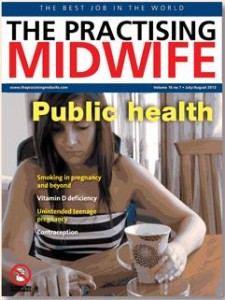 Carol Richardson, joint Portsmouth Hospitals NHS Trust and CMMPH’s PhD student, published her latest article ‘On running for supervisor’ in the most recent edition of The Practising Midwife. Carol as Clinical Academic Doctoral Midwife is conducting her thesis research on the topic of pregnancy and obesity. Her PhD is supervised by FHSS Prof. Vanora Hundley, Dr. Carol Wilkins & Prof. Edwin van Teijlingen.
Carol Richardson, joint Portsmouth Hospitals NHS Trust and CMMPH’s PhD student, published her latest article ‘On running for supervisor’ in the most recent edition of The Practising Midwife. Carol as Clinical Academic Doctoral Midwife is conducting her thesis research on the topic of pregnancy and obesity. Her PhD is supervised by FHSS Prof. Vanora Hundley, Dr. Carol Wilkins & Prof. Edwin van Teijlingen.
Congratulations!
BU PhD student Sheetal Sharma’s publication in MIDWIFERY
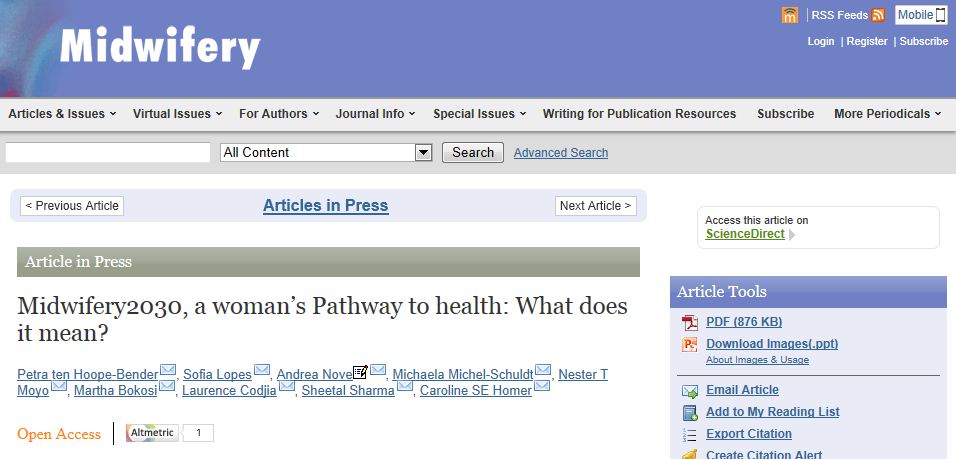
Ms. Sheetal Sharma, PhD student in FHSS, published her latest paper in Midwifery (Elsevier) this week. This latest paper ‘Midwifery2030, a woman’s Pathway to health: What does it mean?’ is co-authored by a number of illustious midwifery researchers. The 2014 State of the World’s Midwifery report included a new framework for the provision of womancentred sexual, reproductive, maternal, newborn and adolescent health care, known as the Midwifery2030 Pathway. The Pathway was designed to apply in all settings (high-, middle- and low income countries, and in any type of health system). This paper describes the process of developing the Midwifery2030 Pathway and explain the meaning of its different components, with a view to assisting countries with its implementation.
Sheetal is currently in her final year of a PhD on the evaluation of the impact of a maternity care intervention in Nepal.
Congratulations!!
Prof. Edwin van Teijlingen, Dr. Catherine Angell & Prof. Vanora Hundley (all CMMPH)
&
Visiting Faculty Prof. Padam Simkhada (based at Liverpool John Moores University).
Reference:
ten Hoope-Bender, P. Lopes, S., Nove, A., Michel-Schuldt, M., Moyo, NT, Bokosi, M., Codjia, L., Sharma, S., Homer, CSE. (2015) Midwifery2013, a woman’s Pathway to health: What does it mean? Midwifery
Ten BU papers on academic writing
Last night I received an email from an academic based in South Africa who asked me if I could facilitate a two-day writing workshop in an other sub-Saharan African country later this month. He had found a copy of our paper ‘Writing an academic paper for publication’ on the web.[1] This is, of course, a good advert for Open Access Publishing. I had the pleasure of being able to tell my African colleague that most of our published papers on various aspects of academic writing are Open Access.[1-10] Hence most are freely available to scholars like him in low-income countries. 
Unfortunately, this particular request was for a workshop later this month, which is far too short notice. Especially since my co-author and BU Visiting Faculty Prof. Padam Simkhada (Liverpool John Moores University) and I will be running a one-day writing workshop in Liverpool the day before the proposed dates of the African workshop.
Professor Edwin van Teijlingen
CMMPH
References
- van Teijlingen, E., Hundley, V. (2002) Getting your paper to the right journal: a case study of an academic paper, Journal of Advanced Nursing 37(6): 506-511.
- van Teijlingen, E. (2004), Why I can’t get any academic writing done, Medical Sociology News 30 (3): 62-63. http://www.britsoc.co.uk/media/26334/MSN_Nov_2004.pdf
- Simkhada, P., van Teijlingen E., Hundley, V., Simkhada, B.D. (2013) Writing an Abstract for a Scientific Conference, Kathmandu University Medical Journal 11(3): 262-265. http://www.kumj.com.np/issue/43/262-265.pdf
- Pitchforth, E., Porter, M., van Teijlingen, E.R., Forrest Keenan, K. (2005) Writing up and presenting qualitative research in family planning and reproductive health care, Journal of Family Planning & Reproductive Health Care 31 (2): 132-135. http://jfprhc.bmj.com/content/31/2/132.full.pdf+html
- van Teijlingen, E., P.P., Simkhada, B., Ireland, J. (2012) The long & winding road to publication, Nepal Journal Epidemiology 2(4): 213-215 http://nepjol.info/index.php/NJE/article/view/7093/6388
- Simkhada, P., van Teijlingen, E., Hundley, V. (2013) Writing an academic paper for publication, Health Renaissance 11(1): 1-5. healthrenaissance.org.np/uploads/Pp_1_5_Guest_Editorial.pdf
- Hundley, V., van Teijlingen, E., Simkhada, P. (2013) Academic authorship: who, why and in what order? Health Renaissance 11(2): 98-101. http://www.nepjol.info/index.php/HREN/article/view/8214/6679
- van Teijlingen, E., Hundley, V., Bick, D. (2014) Who should be an author on your academic paper? Midwifery 30: 385-386. healthrenaissance.org.np/uploads/Download/vol-11-2/Page_99_101_Editorial.pdf
- van Teijlingen, E., Ireland, J., Hundley, V., Simkhada, P., Sathian, B. (2014) Finding the right title for your article: Advice for academic authors, Nepal Journal of Epidemiology 4(1): 344-347. http://www.nepjol.info/index.php/NJE/article/view/10138/8265
- Hall, J., Hundley, V., van Teijlingen, E. (2015) The journal editor: friend or foe? Women & Birth 28(2): e26-e29.
Open Access publishing does not have to be expensive!
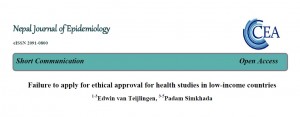 As it is Open Access Week I would like to clarify one of the Open Access publishing myths. One of the common replies I receive from academics colleagues when raising Open Access publishing is that it is (too) expensive. This is, of course, true for many academic journals, but not all are expensive. Some don’t even charge a processing fee at all. Infamously, The Lancet Global Health charges an article processing fee of US $4750 upon acceptance of submitted research articles. More moderately priced scientific journals still charge anything up to about £1,500 per article.
As it is Open Access Week I would like to clarify one of the Open Access publishing myths. One of the common replies I receive from academics colleagues when raising Open Access publishing is that it is (too) expensive. This is, of course, true for many academic journals, but not all are expensive. Some don’t even charge a processing fee at all. Infamously, The Lancet Global Health charges an article processing fee of US $4750 upon acceptance of submitted research articles. More moderately priced scientific journals still charge anything up to about £1,500 per article.
 Academic publishing has been big business for decades, and Open Access has rapidly become part of that business. While traditional book and magazine publishers struggle to stay afloat, research publishing houses have typical profit margins of nearly 40%, according CBCNEWS who quote Vincent Larivière from the University of Montreal’s School of Library & Information Science.
Academic publishing has been big business for decades, and Open Access has rapidly become part of that business. While traditional book and magazine publishers struggle to stay afloat, research publishing houses have typical profit margins of nearly 40%, according CBCNEWS who quote Vincent Larivière from the University of Montreal’s School of Library & Information Science.
At the same time we see a sharp increase in so-called Predatory Publishers who have set up business for the sole reason to make money from Open Access publishing. They have not established or taken over academic journal for the greater good of the discipline or the dissemination of research findings to the widest possible audience. Unscrupulous publishers jump on the Open-Access bandwagon BU librarian Jean Harris recently shared an interesting article about Predatory Publishers (click here to read this!).
![]() However, there are other format of Open Access. One of our more recent papers on research ethics was published in the Nepal Journal of Epidemiology which is an online Open Access journal that does not charge authors for publishing! Also the Journal of Asian Midwives, where FHSS PhD student Preeti Mahato recently had her article accepted, is hosted in Pakistan by Aga Khan University through its institutional repository eCommons. Publishing in this Open Access online journal is also free of charge. In other words, Open Access publishing does not have to be expensive!
However, there are other format of Open Access. One of our more recent papers on research ethics was published in the Nepal Journal of Epidemiology which is an online Open Access journal that does not charge authors for publishing! Also the Journal of Asian Midwives, where FHSS PhD student Preeti Mahato recently had her article accepted, is hosted in Pakistan by Aga Khan University through its institutional repository eCommons. Publishing in this Open Access online journal is also free of charge. In other words, Open Access publishing does not have to be expensive!
Prof. Edwin van Teijlingen
CMMPH
Writing Space – Talbot and Lansdowne
Writing can be difficult and lonely at times. Getting out and away from your usual distractions can help boost your productivity. Sometimes, it’s nice to write amongst a group of other like-minded colleagues, working quietly together and gently encouraging each other to soldier on.
The following quiet writing spaces have specifically been arranged for this purpose, in both the Talbot and Lansdowne campuses on Wednesday afternoons, 1pm to 5pm. Please see below for details:
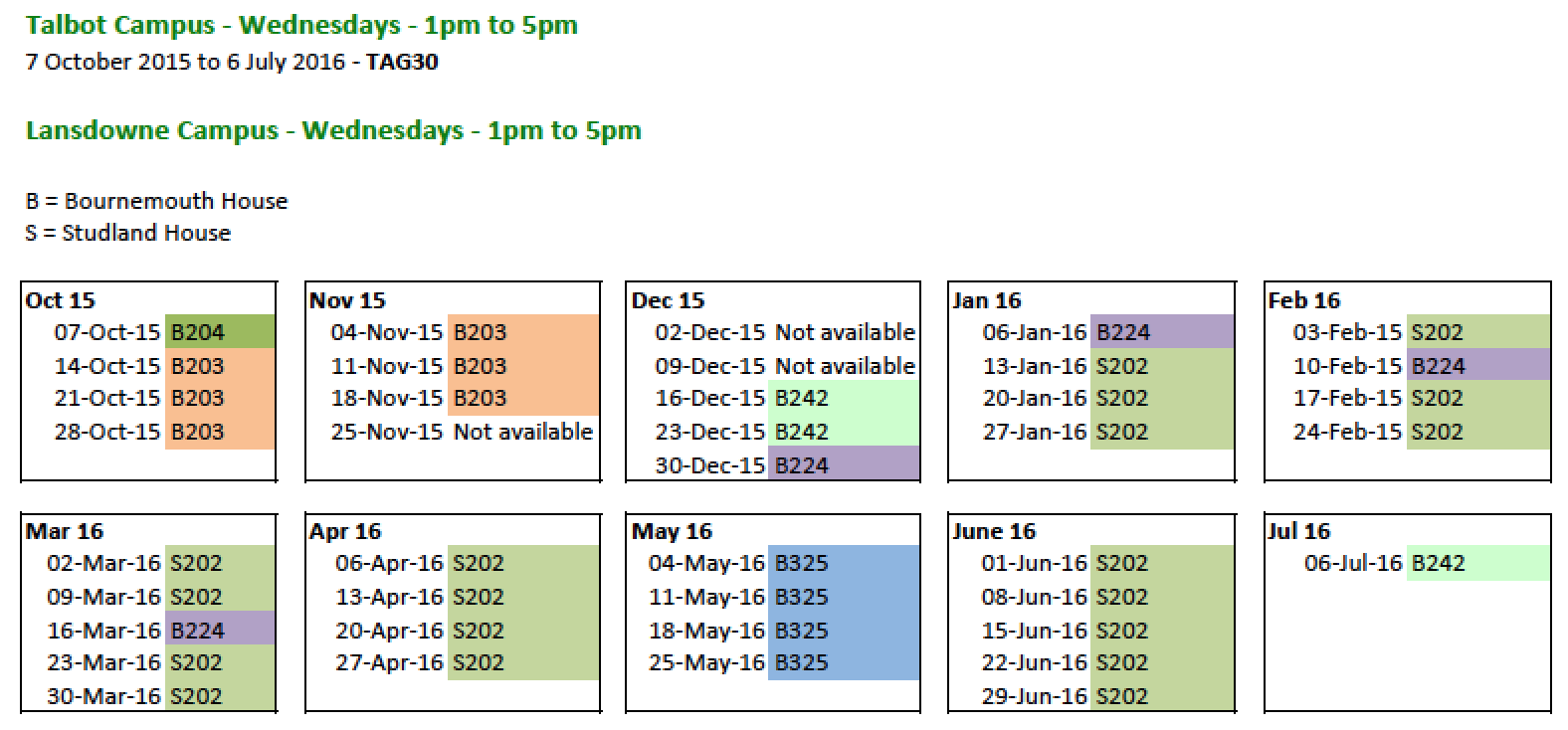 Please click on this link to download the schedule in a printable .pdf file.
Please click on this link to download the schedule in a printable .pdf file.
Talbot and Lansdowne – Writing Space
The idea is to work quietly on research/ professional practice related activities. Distractions must be kept to a minimum, so turn off your email system; no mobile phones or talking. If you really have to talk then be considerate for others and do it away from the group.
There is no need to book so whenever you feel like writing, just turn up!
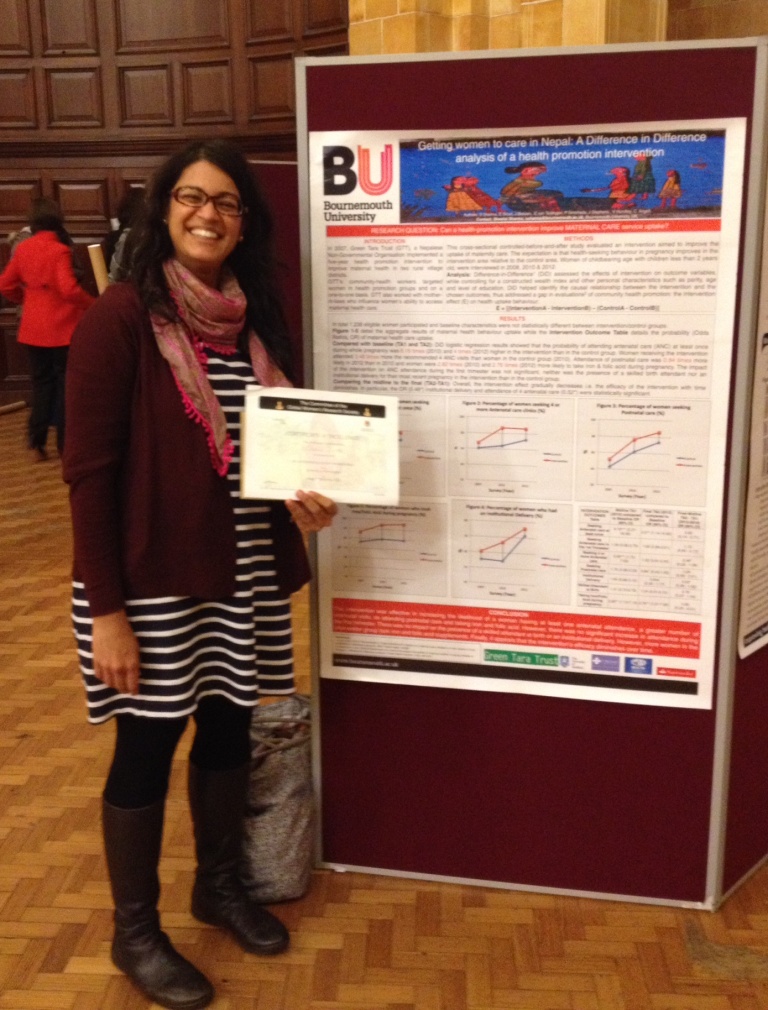












 Read and sign up to BU’s Policy Influence Digest
Read and sign up to BU’s Policy Influence Digest Upcoming opportunities for PGRs – collaborate externally
Upcoming opportunities for PGRs – collaborate externally BU involved in new MRF dissemination grant
BU involved in new MRF dissemination grant New COVID-19 publication
New COVID-19 publication MSCA Postdoctoral Fellowships 2024
MSCA Postdoctoral Fellowships 2024 Horizon Europe News – December 2023
Horizon Europe News – December 2023